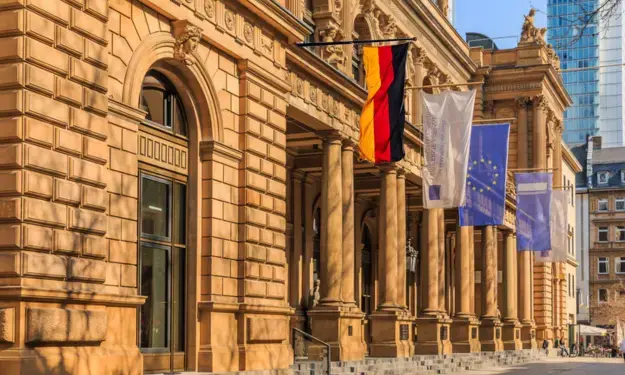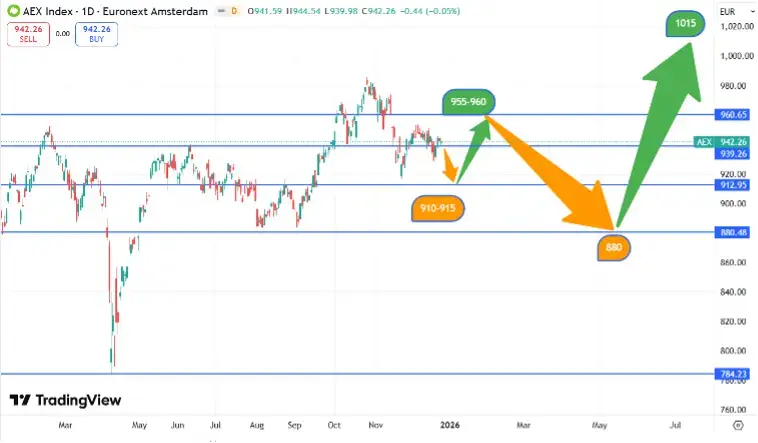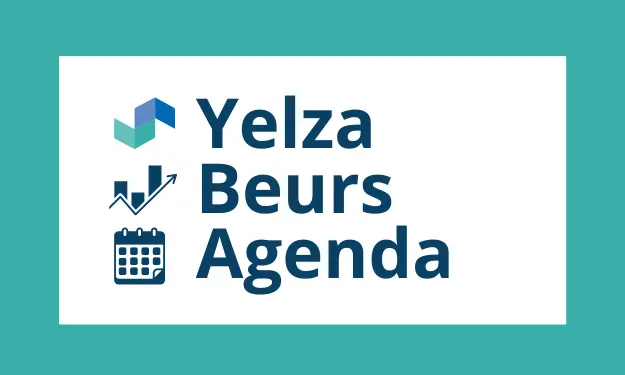Composition of the DAX 40
Publication date: March 19, 2025

The DAX 40 index is one of the leading stock indices in Europe, reflecting the performance of the 40 largest and most traded listed companies in Germany. Until September 2021, the index was known as the DAX 30, after which it was expanded to 40 companies. Understanding the composition of the DAX 40 is essential for investors seeking to understand the German economy and the dynamics of European stock markets.
Why is the composition of the DAX 40 important?
The composition of the DAX 40 index is of great importance to investors for several reasons:
-
Important indicator of the German economy: The DAX 40 reflects the performance of the 40 largest listed companies in Germany and is considered the country's main stock market index. As Germany is Europe's largest economy, the index serves as a key indicator of both national and broader European economic developments.
-
Basis for investment products: The DAX 40 is widely used as an underlying for various financial products, such as ETFs, index funds, and derivatives such as options and futures. This makes it easy for investors to invest in a well-diversified selection of leading German companies.
-
International influence: Many companies within the DAX 40 are multinational companies with global market positions, such as Siemens, SAP and Volkswagen. As a result, the index provides insight not only into the German economy but also into broader international trends and economic developments.
By properly understanding the composition of the DAX 40, investors can better anticipate opportunities within the German and European stock markets and benefit from the dynamics of the largest companies within the Eurozone.
| Company | Sector | Estimated weighting | Want to know more? |
| Adidas | Consumer Goods | 2,13% | Read here |
| Airbus Group | Aerospace | 5,98% | Read here |
| Allianz | Insurance | 7,97% | Read here |
| BASF | Chemicals | 2,25% | Read here |
| Bayer | Healthcare | 1,59% | Read here |
| Beiersdorf | Consumer Goods | 0,61% | Read here |
| BMW | Automobiles and parts | 1,30% | Read here |
| Brenntag | Chemistry | 0,43% | Read here |
| Commerzbank | Banks | 1,79% | Read here |
| Continental | Automobiles and parts | 0,49% | Read here |
| Daimler Truck Holding | Cars and parts | 1,24% | Read here |
| Deutsche Bank | Banks | 2,84% | Read here |
| Deutsche Börse | Financial Services | 3,11% | Read here |
| DHL Group Deutsche Post | Logistics | 2,46% | Read here |
| Deutsche Telekom | Communication services | 6,66% | Read here |
| E.ON | Energy | 2,12% | Read here |
| Fresenius SE | Healthcare | 1,05% | Read here |
| Fresenius Medical Care | Healthcare | 0,59% | Read here |
| Hannover Rück | Insurance | 0,98% | Read here |
| Heidelberg Materials | Construction and materials | 1,42% | Read here |
| Henkel & Co. | Consumer goods | 0,65% | Read here |
| Infenion Technologies | Technology | 2,71% | Read here |
| Mercedes Benz Group | Automobiles and Parts | 2,64% | Read here |
| Merck KGaA | Healthcare | 1,25% | Read here |
| MTU Aero Engines AG | Aerospace | 1,22% | Read here |
| Munchener Rück | Insurance | 4,63% | Read here |
| Porsche AG Rev. | Automobiles and parts | 0,45% | Read here |
| Porsche Automobil Holding SE | Automobiles and parts | 0,38% | Read here |
| Qiagen NV | Healthcare | 0,67% | Read here |
| Rheinmetall AG | Aerospace | 1,87% | Read here |
| RWE AG | Energy | 1,34% | Read here |
| SAP SE | Technology | 16,69% | Read here |
| Sartorius AG | Medical technology | 0,33% | Read here |
| Siemens AG | Industry | 9,55% | Read here |
| Siemens Energy AG | Energy | 3,61% | Read here |
| Siemens Healthineers AG | Medical Devices | 0,85% | Read here |
| Symrise AG | Chemistry | 0,73% | Read here |
| Volkswagen AG | Automobiles and parts | 1,09% | Read here |
| Vonovia SE | Real estate | 1,28% | Read here |
| Zalando SE | E-commerce | 0,38% | Read here |
The DAX 40 weightings as of June 20, 2025. These weightings will soon be updated to reflect a more up-to-date distribution by the company. The most recent version of Wikipedia was used as a reference for this compilation. You can view it at the following link: DAX
The DAX 40 is a market capitalization-weighted index, meaning that companies with higher market capitalization have a greater influence on index movements. The weighting of each company determines the extent to which a price movement contributes to the overall index change.
For example, Adidas has a weighting of 2% in the DAX 40. Thus, a 10% rise or fall in Adidas' share price would result in a 0.2% movement in the entire index. Similarly, a company with a higher weighting, such as SAP SE (10.1%), will have a much greater impact. A 10% rise in SAP would move the DAX 40 by 1.01%.
Stocks are eligible for inclusion in the DAX 40 index if they are among the 40 largest and most traded funds in Germany, ranked by the market capitalization of their freely traded shares. The DAX 40 is a market capitalization-weighted index, with restrictions on individual weightings to prevent a single company from having too great an impact on the index.
Disclaimer: Investing involves risk. Our analysts are not financial advisors. Always consult an advisor when making financial decisions. The information and tips provided on this website are based on our analysts' own insights and experiences. They are therefore for educational purposes only.

.svg)
.webp)

.webp)
.webp)




